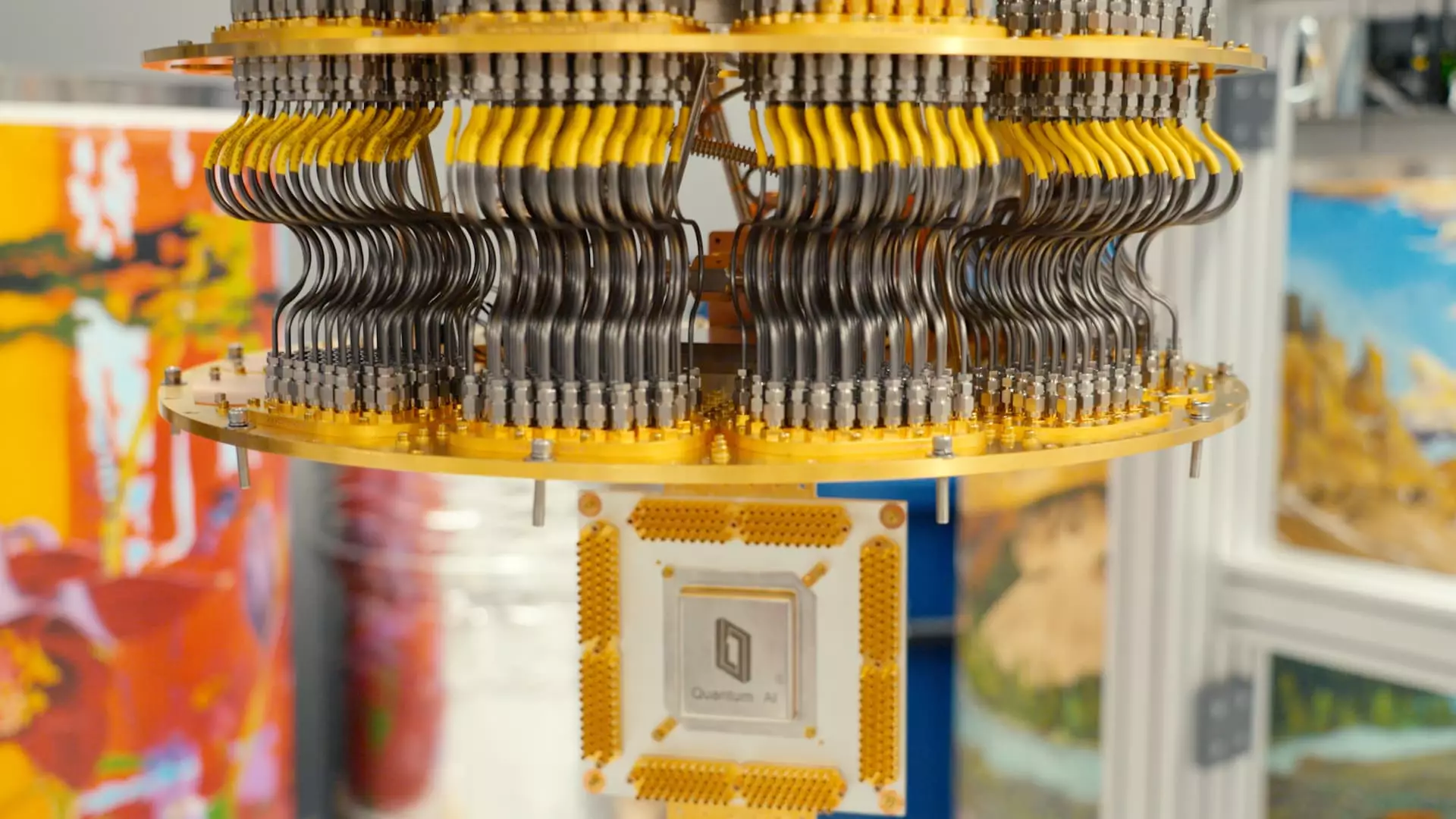In a hidden enclave in Santa Barbara, Google is channeling its energies into a formidable frontier: the development of cutting-edge quantum computers. This initiative could redefine computing as we know it. Julian Kelly, the hardware director at Google Quantum AI, envisions a synergistic future where quantum technologies and artificial intelligence (AI) intertwine seamlessly. This perspective is crucial because it acknowledges that the future of technology may not just hinge upon one revolutionary advancement but rather on the intersection of multiple innovations.
In late 2022, OpenAI’s ChatGPT surged into the limelight, essentially taking the lead in the generative AI race. Google, often perceived as a latecomer in this domain, quickly strategized to reclaim its position. The unveiling of the Willow chip marked a turning point, showcasing remarkable potential. This technology can tackle complex problems at speeds that dwarf those of classical computers. According to renowned quantum physicist John Preskill, this advancement marks a significant milestone — one that the scientific community has been eagerly anticipating.
Transforming Research into Real-World Solutions
The prospects of the Willow chip extend beyond merely solving computational problems; they open the door to bridging the gap between theoretical research and tangible applications. As leading AI frameworks face limitations due to a depletion of high-quality data, quantum computing emerges as a viable solution. The ability to generate novel data could unshackle AI from its current constraints and allow it to evolve further.
Kelly’s vision recalls AlphaFold, another groundbreaking creation from Google DeepMind that has already received accolades such as the 2024 Nobel Prize in Chemistry. This AI tool has revolutionized how scientists analyze and model protein structures but operates primarily on existing data. Kelly points out that this presents a unique opportunity: quantum computers could provide fresh, informative datasets trained on quantum mechanics principles, something that’s currently lacking in AI training processes.
A Glimpse into the Future
The timeline for these advancements is optimistic yet ambitious. Kelly has asserted that Google is potentially just five years away from unveiling a practical application that can only be addressed through quantum computing. This assertion highlights the urgency and significance of these efforts. If successful, Google could emerge as a leader in a new technological epoch, where quantum computing not only augments AI capabilities but also revolutionizes data generation.
The implications of combining quantum computing with AI are vast and monumental. Beyond enhancing computational efficiency, this synergy could unlock breakthroughs in countless fields, including medicine, materials science, and beyond. By harnessing the unpredictability of quantum mechanics, researchers and developers can pave the way for complex problem-solving that was once relegated to the realm of science fiction.
In this breathtaking race towards quantum advancement, Google’s endeavor is not just a leap into an uncharted technological realm; it holds the promise of reimagining our understanding of computation, data, and perhaps the very fabric of reality itself. As we stand on the brink of a new era in technology, the collaboration between quantum computing and AI may just be the pivotal catalyst we’ve all been waiting for.


Leave a Reply